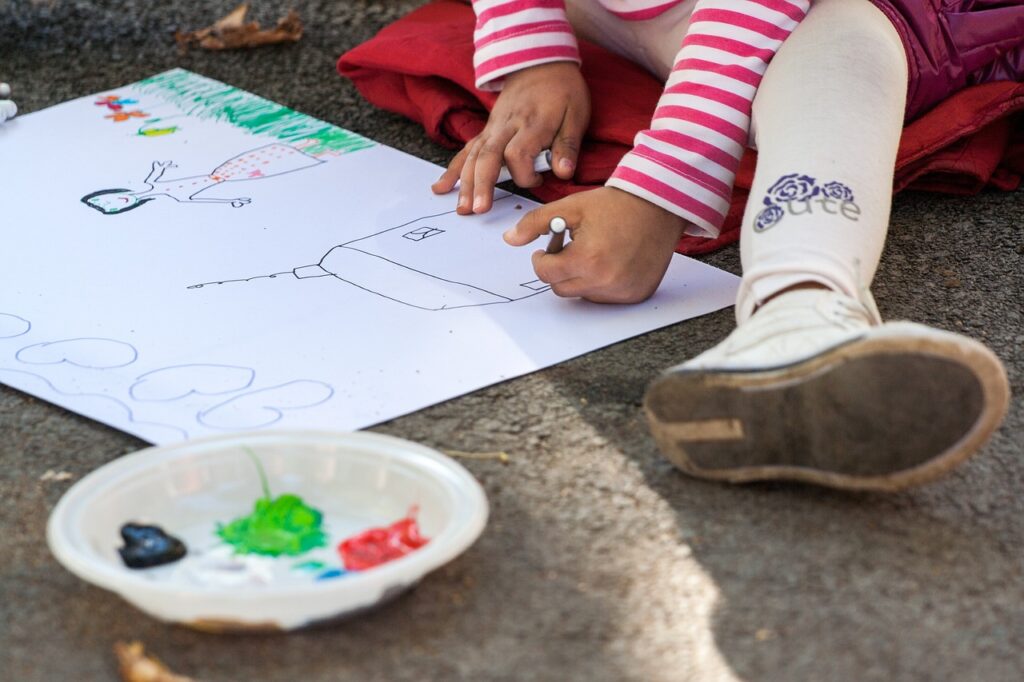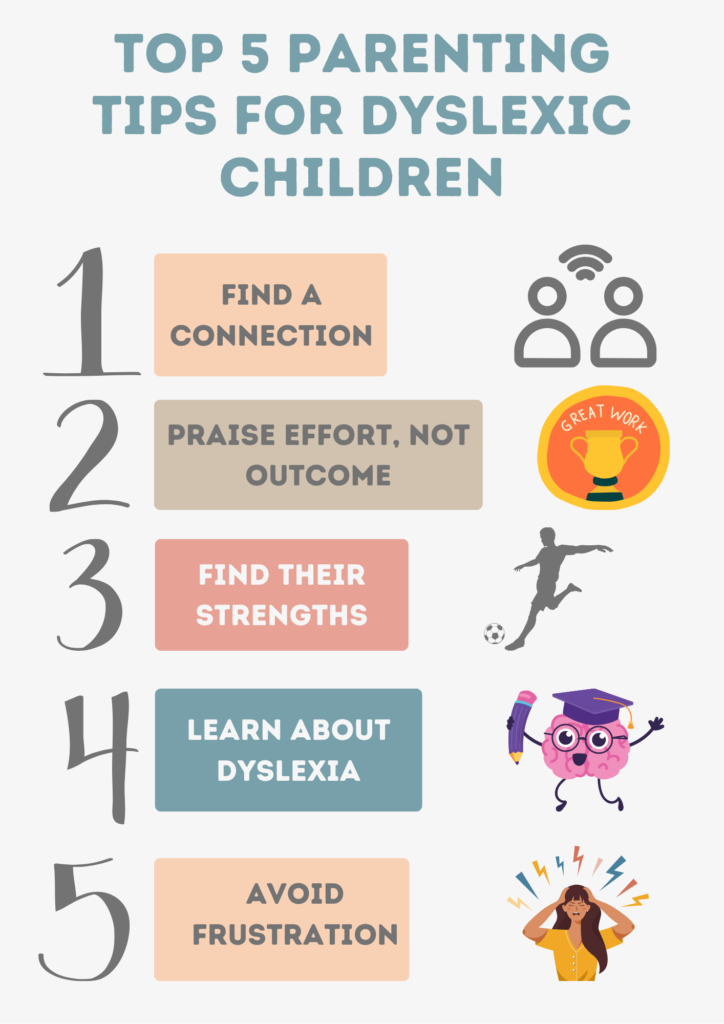
Need more help? I’d love to talk with you.
What are my top 5 dyslexic parenting tips?
1. Find a connection.
This is critical for any parent-child relationship, but for dyslexic children, it’s even more important. Find an interest that you both enjoy and make a plan to touch base every week. Maybe you both like art. One week, you might watch a cool video on an artist or a how-to video. The next week, maybe you go for an art scavenger hunt in the neighborhood. There are so many options out there and it doesn’t take a lot of time out of your schedule to make a big impact on your child’s mental wellbeing.

2. Praise effort, not outcome
We want to foster a growth mindset in our children. However, for dyslexic children it can be challenging. They are faced with feelings of failure often and can get beaten down quickly. It is important that parents of dyslexic children nurture the effort and persistence, not the outcome. This is especially true when it comes to school. There is a good chance that your child has been on the receiving end of many failing grades. It can be extremely defeating. If we can shift their focus to their effort and personal growth, they will gain resiliency and perseverance.

3. Find something they are good at…and commit to it.
Often times, dyslexic children spend their whole day feeling like they are not good at anything. It can be very discouraging and lead to low self-esteem and depression. If they have something, ANYTHING, that they can say they are good at, they are in a much better place. They will have that confidence to go into battle each and every day, knowing that they are really good at something (even if it’s not reading or math). This could be any sport, music, art, dance…. the sky’s the limit. Once you both find that special thing, make it a constant in their life. Encourage them and celebrate them on their special talent. Share how proud you are of them to others.

4. Learn as much as you can about dyslexia
Education is power. Especially when it comes to parenting dyslexic children. Find out what dyslexia is (and isn’t). Find parent support groups to join. Learn how to help your child, both academically and emotionally. Be open with your child about dyslexia and let them know that you are there to support them 100%. Many parents are apprehensive about telling their children that they have dyslexia and what that means. However, I have found on many occasions that it provides relief to our child and empowers them to advocate for themselves. There’s nothing worse than a dyslexic child going through childhood and school years not knowing why it’s so hard for them and them feeling like they are just stupid. This leads to depression, anxiety, and social isolation.

5. Do your best to avoid frustration with your child
This can be hard. Especially when we’ve had a long day, come home, and have to help our child with their homework. Thoughts run through your head, “This is too hard! Why can’t they get this? I just told them 5 seconds ago and they’ve already forgotten!” This is completely normal. However, your frustration will be apparent to your child. Trust me, your child is also frustrated and tired. When they see you getting frustrated and irritated with them as well, they are likely to shut down and close themselves off, leaving themselves with negative self-talk and self-deprecating feelings.


